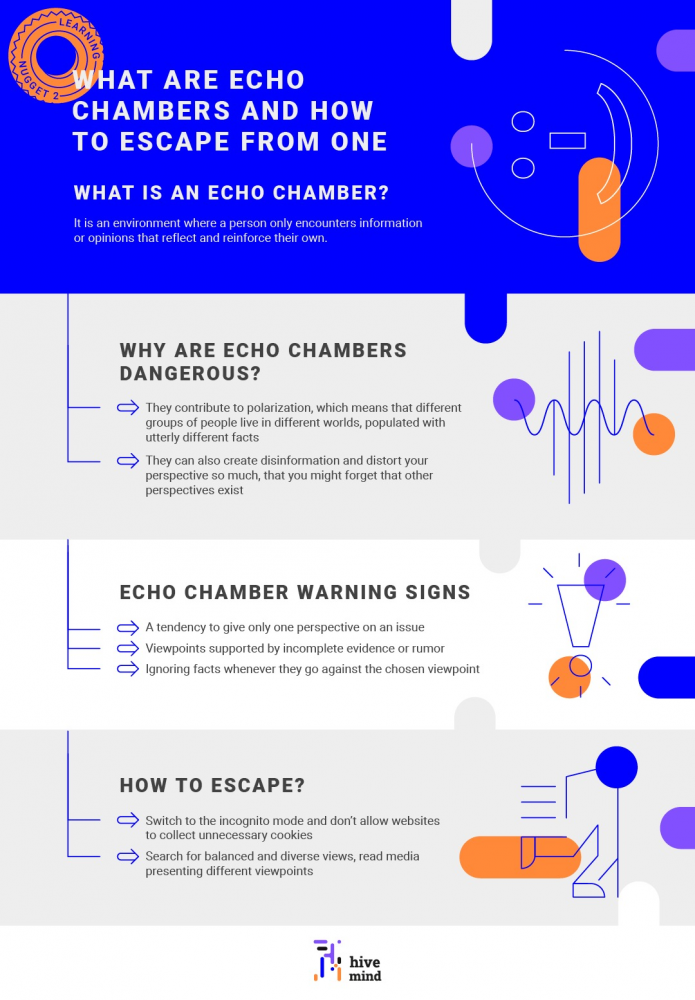Online platforms and social media have some powerful algorithms working in the background and dictating what users should see next. The result is a flood of articles and posts that support your current opinions and perspective, ensuring that you enjoy what you see. That might not sound so bad, but such filters can create what is known as “echo chambers”.
What are echo chambers?
An echo chamber is an environment where a person only encounters information or opinions that reflect and reinforce their own.
Echo chambers can happen anywhere information is exchanged, whether online or in real life. However, it is much easier to find like-minded people on the internet and on social media. And the very rapid pace of spreading info online is what makes echo chambers much easier to come across.
Why are echo chambers dangerous?
Echo chambers isolate their members. Insiders come to distrust everybody on the outside.
On a large scale, echo chambers contribute to polarization, which means that different groups of people live in different worlds, populated with utterly different facts. Echo chambers can also create disinformation and distort your perspective so much that you have difficulty considering opposing viewpoints. You forget that other perspectives exist.
How to recognize you’re in an Echo Chamber?
There is no perfect way to avoid echo chambers. They are also tricky to recognize, especially if you are already in one. Fortunately, there are some specific warning signs that will tell you if a social media group or a website is an echo chamber.
Beware whenever you find yourself within a group where:
There is a tendency to give only one perspective on an issue,
A viewpoint is primarily supported by incomplete evidence,
A viewpoint is primarily supported by rumor,
Facts are ignored whenever they go against that chosen viewpoint
If any of these statements are true, you might have landed in an echo chamber.
How to avoid getting stuck in your own echo chamber?
There are two major ways to steer clear of an echo chamber:
Firstly, switch to the incognito mode and don’t allow websites to collect unnecessary cookies. This way, you won’t feed all the information about your life and preferences into the social media and search engine algorithms. As a result, they will serve a more diverse content to you.
Secondly, search for balanced and diverse views. Having a balanced worldview is an active choice. Follow influencers who hold and express balanced opinions. Read the media which usually consider each issue from different perspectives. Don’t unfollow your friends who hold views different from yours.
To learn more about how to stay alert when faced with various forms of information disorder, register for our free self-paced course “Countering Disinformation”.
Here's a downloadable infographic summarising this article:
 Like this infographic? Get it here!
Like this infographic? Get it here!
